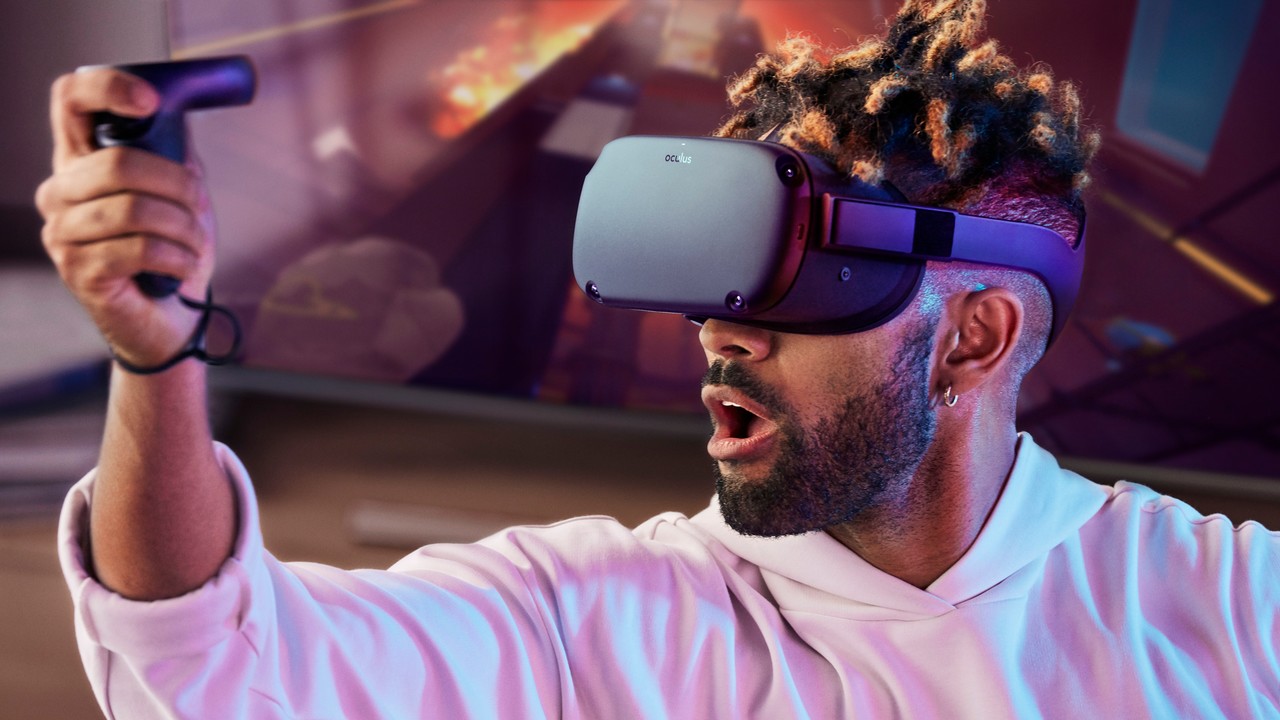Rift 2 eingestellt: Auch Oculus-Co-Gründer verlässt Facebook

Mit Brendan Iribe, dem Co-Gründer und ehemaligen CEO von Oculus, verlässt eine weitere Führungsperson eines zugekauften Unternehmens Facebook – auch die Gründer von WhatsApp und Instagram kehrten Facebook zuletzt im Streit den Rücken. Bei Iribe soll die Einstellung der Arbeiten am Rift-2-Headset ausschlaggebend gewesen sein.
Einige Umstrukturierungen in der Virtual-Reality-Abteilung bei Facebook in der vergangenen Woche sollen zur Einstellung der Entwicklung der nächsten Generation des Virtual-Reality-Headsets, der Rift 2, geführt haben, die von Brendan Iribe geleitet wurde. Gegenüber TechCrunch bekräftigte Facebook jedoch, dass man an VR glaube und an einem Nachfolger der Rift arbeite, ohne jedoch zu bestreiten, dass die ursprüngliche Entwicklungsrichtung aufgegeben wurde.
Iribe folgt Palmer Luckey
Wie schon bei WhatsApp und Instagram sollen die Vorstellungen der Zukunft von Oculus im Facebook-Unternehmen zwischen Iribe und dem Vorstand von Facebook zunehmend auseinandergeklafft und sich immer weiter voneinander entfernt haben. Iribe folgt damit auch Palmer Luckey, mit dem er Oculus VR gegründet hatte und der Facebook bereits Anfang 2017 verlassen hatte.
Iribe äußert sich nicht zu seinen Gründen
Auch wenn man erst am Anfang der Entwicklung von VR stehe und Oculus das beste Team habe, um die Herausforderungen an Hard- und Software zu lösen, sei es für ihn an der Zeit neue Wege zu gehen, so Iribe in der Ankündigung seines Abschieds von Oculus und Facebook. Jeder Bereich von AR und VR müsse sich noch weiterentwickeln, gerade auch die Hardware, so Iribe. Dabei dankt er auch explizit Mark Zuckerberg für seinen Glauben an das Oculus-Team und die Zukunft von VR.
So much has happened since the day we founded Oculus in July 2012. I never could have imagined how much we would accomplish and how far we would come. And now, after six incredible years, I am moving on.
I’m deeply proud and grateful for all that we’ve done together. We assembled one of the greatest research and engineering teams in history, delivered the first step of true virtual presence with Oculus Rift and Touch, and inspired an entirely new industry. We started a revolution that will change the world in ways we can’t even envision.
Yet, as far as we’ve come, the journey has just begun. Michael Abrash is right: “These are the good old days”. Now is when we get to pioneer the foundation of the next great computing platform and medium – this is our time to be pushing the state-of-the-art onward and upward. Every part of VR and AR needs to improve, especially the hardware and core technology, and Oculus has the best team in the world to do that. Although we’re still far from delivering the magical smart glasses we all dream about, now they are nearly within our reach.
Working alongside so many talented people at Oculus and Facebook has been the most transformative experience of my career. We have a saying when someone compliments or thanks you – “Team effort”. The success of Oculus was only possible because of such an extraordinary team effort. I’d like to sincerely thank everyone that’s been a part of this amazing journey, especially Mark for believing in this team and the future of VR and AR.
As for me, this will be the first real break I’ve taken in over 20 years. It’s time to recharge, reflect and be creative. I’m excited for the next chapter.
Brendan Iribe
Auf dem Weg zum All-in-One-Gaming-VR-Headset
Die Aufgabe der Rift 2 wird als Hinweis gesehen, dass Facebook nicht mehr an einem VR-Headset arbeiten wird, das einen PC als Zuspielgerät benötigt. Im Juni 2018 startete die Oculus Go in Europa, im Frühjahr 2019 wird hingegen die Oculus Quest für 399 US-Dollar erscheinen, ein weiterer Zwischenschritt zum All-in-One-VR-Gaming-Headset zwischen der Oculus Go und der Oculus Rift. Gleichzeitig sieht Mark Zuckerberg in der Oculus Quest das letzte Modell der ersten Generation an VR-Headsets.
Ihr habt die Wahl: Macht mit bei den Reader's Choice Awards 2025 und bestimmt eure Hersteller des Jahres!
